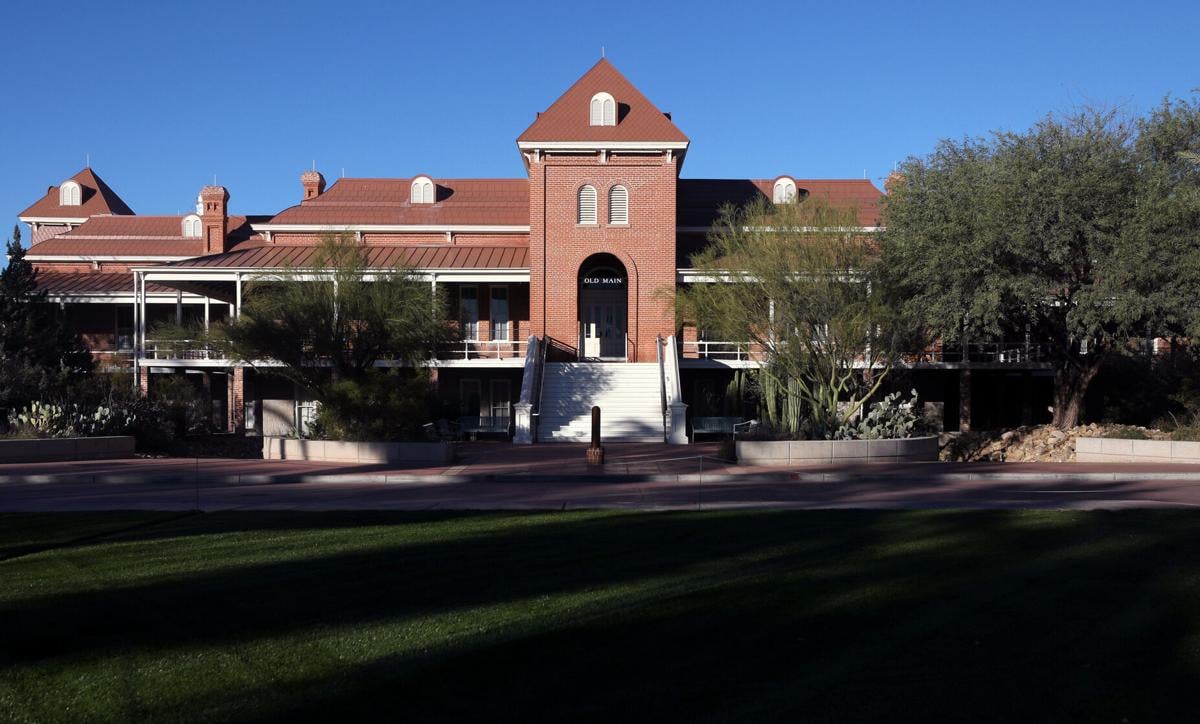The University of Arizona’s joint council on Jewish life and antisemitism is “appalled” that Faculty Senate Chair Leila Hudson deferred publishing a resolution condemning antisemitism on campus.
The group, which released the statement through the UA’s Hillel chapter, wrote that Hudson should have gone through with her promised resolution during Monday’s Faculty Senate meeting.
Hudson, who is Palestinian, told the Faculty Senate earlier this week that she could not “in good conscience” submit it after UA’s handling of a pro-Palestinian encampment on campus that was broken up by police last week. She said she was deferring the resolution to the senate’s diversity, equity and inclusion committee.
Early on May 1, officers with the UA Police Department, the Tucson Police Department, the Pima County Sheriff’s Department, the Arizona Department of Public Safety and SWAT descended on the encampment near the UA main gate. Protesters in the camp, which included pop-up tarps, stayed on campus past the 10:30 p.m. curfew for non-academic activity as they demonstrated against Israel’s actions in its war with Hamas in Gaza. UA President Robert C. Robbins, after an hours-long standoff that he said created a volatile and dangerous situation, told authorities to “immediately enforce campus use policies and all corresponding laws.” Officers fired rubber bullets and pepper balls at protesters.
“Every day is a day to call out antisemitism; one of these events has nothing to do with the other,” the Jewish council wrote.
The group includes students, professors, board members of Hillel and Rabbi Shmulie Sanowicz of the university Chabad.
“Since the horrific events of October 7,” when Hamas attacked Israel, “Jewish students at the University of Arizona and at campuses across the country have experienced antisemitic harassment and intimidation,” the statement reads. “Jewish students at the UA are afraid to walk to class.”
The group stated that Jewish students on the UA campus “have been called horrific epithets and spit on as they walk through campus.”
It said the university has taken “necessary and well-communicated steps to enforce its policies and code of conduct” to ensure the safety of Jewish students.
In a statement shared with the Arizona Daily Star after the publication of this initial article, Hudson wrote: "Not only do I reject antisemitism personally as a grieving Palestinian American and professionally as a critical historian, but I also feel more than confident enough in our shared values to do so as elected Chair of the Faculty on behalf of the entire Faculty Senate, on behalf of the entire Faculty of the University of Arizona, and even on behalf of the University of Arizona community itself. That includes our protestors of conscience."
Hudson added, that "the powerful force of our collective loathing of antisemitism and its kindred prejudices and hatreds must not be used to chill legitimate speech, nor to justify disproportionate police and institutional violence against conscience-based civil disobedience."
Hudson was initially called on by some faculty members to write a formal resolution on antisemitism after a Jewish fraternity on campus, Alpha Epsilon Pi, was graffitied last month. The graffiti, which fraternity leaders said was antisemitic, referenced the Israel-Hamas war.
In her statement to the Faculty Senate earlier this week, Hudson said it is a “critical moment for the principles of free speech and academic freedom,” as the U.S. Congress is “attempting, uniquely, to legislate the meaning of antisemitism in a way which many individual scholars, and many individual citizens, believe will limit free speech in the name of fighting hatred, which I personally oppose.”
She also said she was working to create an ad hoc faculty committee to investigate the police response to the encampment.
“Students and community members who peacefully breached university rules, in the long tradition of civil disobedience on college campuses, assembled peacefully to call attention to Israeli atrocities in Gaza, unconditional U.S. material support and the university ties to government and private sector contributors to the political economy of occupation, ethnic cleansing and the violation of humanitarian law,” Hudson said about the encampment.
Pro-Palestinian protestors at the University of Arizona retreat after arrests.





